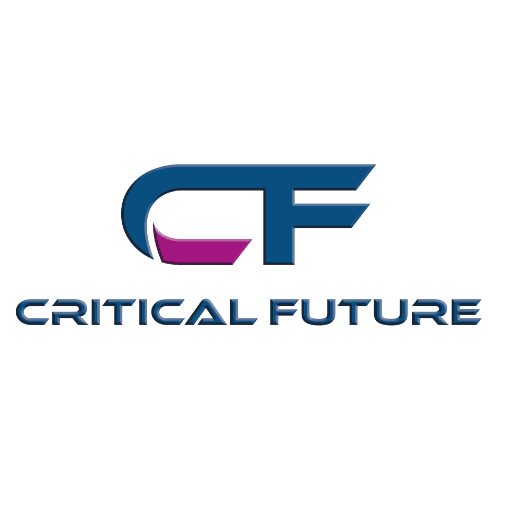How AI is Revolutionizing Healthcare in 2025: A Look at the Latest Breakthroughs
- March 10, 2025
- Posted by: Mai - CF Brand Ambassador
- Category: Daily Blogs
How AI is Revolutionizing Healthcare in 2025: A Look at the Latest Breakthroughs
Imagine a world where healthcare is not only personalized but predictive, where diseases are detected before symptoms appear, and treatment plans are tailored to individual genetic makeups. This vision is becoming a reality in 2025 as artificial intelligence (AI) continues to evolve and embed itself into the heart of the healthcare industry. The rapid advances in AI technologies are playing a critical role in transforming medical diagnostics and treatment, promising a future where healthcare is smarter, faster, and more accurate.
AI’s Growing Role in Healthcare
AI has become an indispensable ally in healthcare, driving innovations that have significantly enhanced diagnostic accuracy and treatment efficiency. Advances in deep learning and real-time data processing allow for the development of sophisticated AI models capable of detecting diseases in their earliest stages. For instance, new AI algorithms are now identifying early symptoms of cancer and neurodegenerative diseases like Alzheimer’s years before traditional diagnostic tools can.
These technological breakthroughs are primarily fueled by three factors: the explosion of healthcare data, improvements in machine learning algorithms, and the increased computational power afforded by cloud computing technology. Multimodal AI models, which can process and integrate data from various sources such as medical images, genomic sequences, and patient history, have become particularly significant, providing more comprehensive and accurate diagnostic predictions.
Breakthrough Moment: AI Detects Cancer Earlier Than Ever
In a groundbreaking development in January 2025, a leading research institution announced the creation of an AI diagnostic tool that demonstrated 98% accuracy in detecting cancer during clinical trials. This new tool leverages a combination of deep learning techniques and large-scale genomic data to predict cancer well before the onset of significant symptoms. Such advancements are groundbreaking, not only enhancing the potential for earlier interventions but also significantly improving patient outcomes.
The significance of these advancements cannot be overstated. As AI tools continue to improve, they promise to address longstanding challenges in healthcare, such as diagnostic errors and delays, by providing healthcare practitioners with tools capable of swift and precise assessments.
How Industries Are Implementing This Technology
The healthcare industry is witnessing a wave of AI adoption across various sectors, from hospitals and research labs to biotech companies and health insurance firms. These entities are integrating AI technologies to streamline operations, enhance patient care, and reduce costs. For example, hospitals are employing AI systems to optimize patient flow and manage resources efficiently. AI-driven chatbots and virtual assistants are providing preliminary medical advice, scheduling appointments, and even offering mental health support around the clock.
AI’s role in pharmaceutical research is also noteworthy, as machine learning models are being used to accelerate drug discovery and personalized medicine. By analyzing vast datasets of patient information, AI systems can identify individuals who are more likely to benefit from specific drug treatments, paving the way for more effective therapies with minimal side effects.
The Future Implications of AI Advancement
Looking ahead, the implications of AI in healthcare are profound and multifaceted. Experts predict that AI will continue to reshape how health data is collected, analyzed, and used not only to inform clinical decisions but also to foster predictive and preventive healthcare strategies. Dr. Anna Roberts, an AI research scientist, commented, “AI is no longer just assisting doctors—it’s transforming the entire healthcare system.”
However, as promising as these advancements are, they also bring several ethical and practical challenges. The potential for AI to introduce bias into healthcare decisions, whether due to biased training data or flawed algorithms, remains a critical concern. Ensuring that AI systems are fair, transparent, and accountable is essential to gaining trust from both healthcare professionals and patients.
Furthermore, the integration of AI into healthcare must address data privacy and security concerns, as the increased reliance on digital systems could expose sensitive patient data to unauthorized access. The role of regulatory frameworks and governance in overseeing AI deployment in healthcare is increasingly vital, as highlighted by recent developments where the World Health Organization announced a new collaborating center focused on AI health governance.
What This Means For Our Future
As AI continues to advance, it remains poised to revolutionize the healthcare industry, ushering in an era of unprecedented innovation and efficiency. The promise of AI lies in its ability to transform healthcare into a more personalized, accessible, and effective system. But as we move forward, a vital question arises: How much should we rely on machines for life-and-death decisions, and what safeguards should be in place to ensure AI technologies contribute positively to society?
